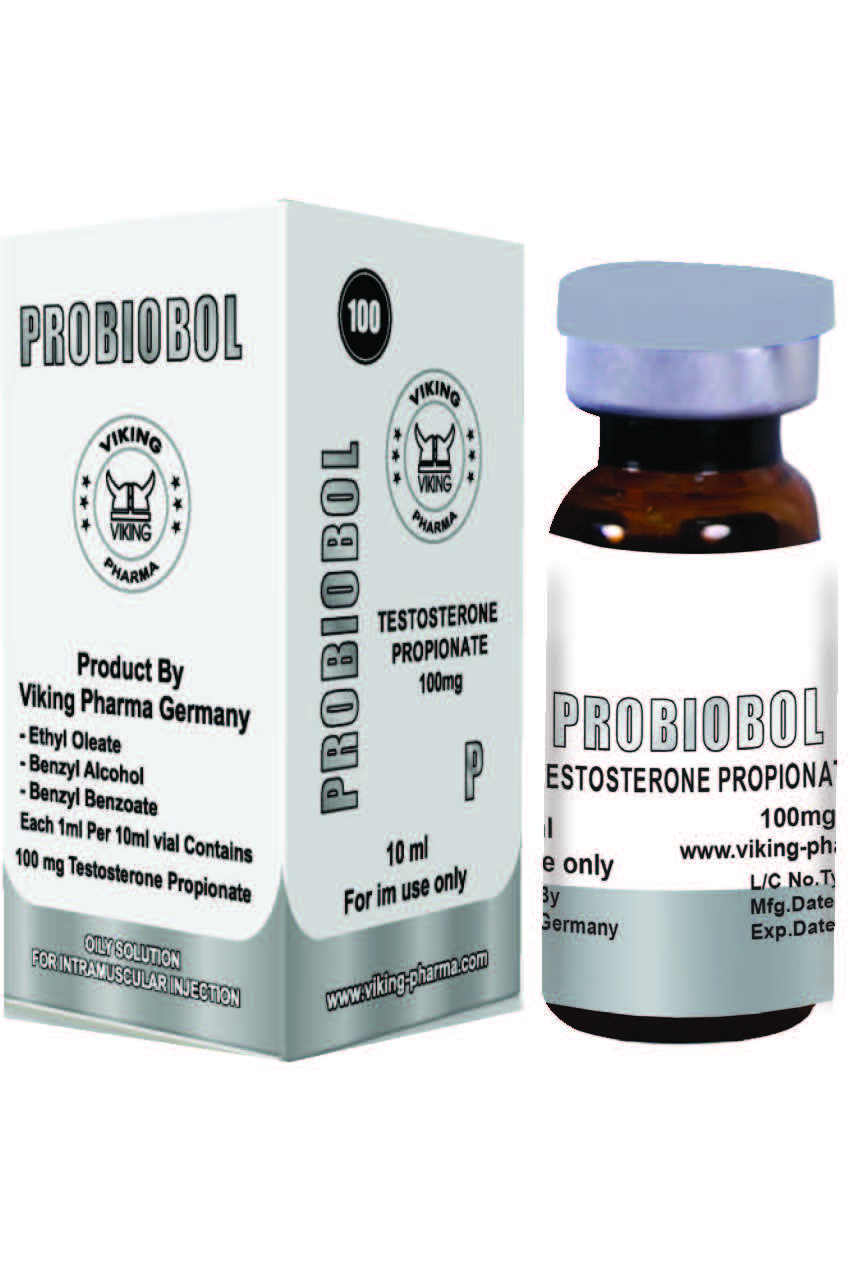Probiobol 100 (Testosterone Propionate 100 mg/ml)
Probiobol 100 contains Testosterone Propionate, a fast-acting testosterone ester known for delivering rapid increases in strength, muscle fullness, and training performance. Its short ester allows for quick absorption and stable hormonal activity when administered consistently.
Scientific Overview
Testosterone Propionate provides a strong anabolic-androgenic effect with a shorter half-life than long-acting testosterone esters. This results in faster hormonal elevation, improved protein synthesis, and enhanced nitrogen retention. It is widely used during cutting and performance cycles due to its ability to promote lean gains with minimal water retention.
Mechanism of Action
- Rapid activation of androgen receptors in muscle tissue
- Enhances protein synthesis and nitrogen balance
- Boosts red blood cell production and oxygen transport
- Supports libido, mood, and overall hormonal balance
Purpose / Indications
- Supports lean muscle growth and strength
- Improves training intensity and endurance
- Useful for cutting, recomposition, or performance-focused cycles
- Helps maintain muscle fullness with minimal fluid retention
Key Benefits
- Fast-acting and stable anabolic effect
- Enhances strength, power, and muscle density
- Minimal water retention due to short ester
- Improved recovery and training performance
Composition
Active ingredient: Testosterone Propionate – 100 mg/ml
Solvent system: Sterile oil-based pharmaceutical-grade excipients
Dosage and Administration
- For intramuscular injection only
- Administer in deep muscle using sterile technique
- Use under supervision of a qualified specialist
Warnings and Precautions
- For adult males aged 21+ only
- Not suitable for women or minors
- Avoid use in individuals with prostate, cardiac, hepatic, or renal issues
- May cause injection-site discomfort due to short ester
- Store below 25°C in a cool, dry place
- Keep out of reach of children
Storage
Store upright in a cool, dry environment below 25°C. Protect from light and moisture. Do not freeze. Discard the product if the solution becomes cloudy or contains particles.
Packaging
Form: Sterile injectable solution
Strength: 100 mg Testosterone Propionate per ml
Vial size: 10 ml glass vial
Presentation: 10 ml glass vial with plastic flip-off cap engraved with the Viking Pharma logo, packed inside a printed carton box
